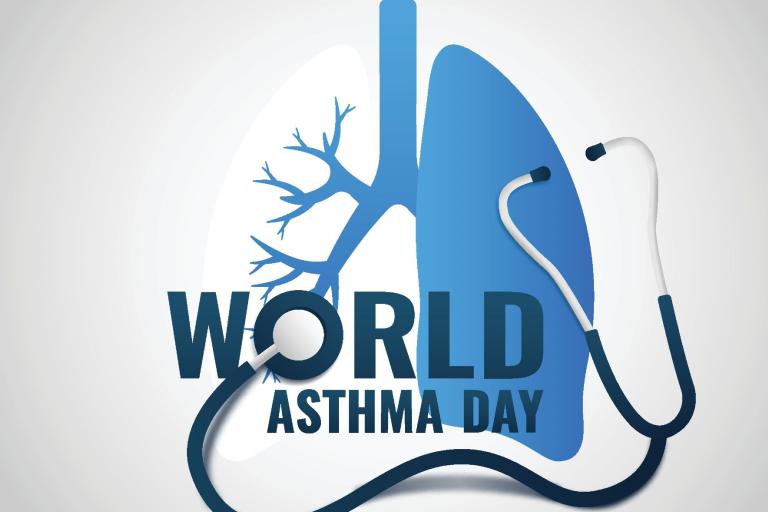Search by Color or Cause


On World Asthma Day (the first Tuesday in May) and throughout May, organizations work to increase awareness. Asthma specialists and organizations dedicated to asthma control join together to increase awareness about asthma and improve the lives of all people with asthma. Wear a gray awareness pin, fabric ribbon or wristband to raise awareness for World Asthma Day.
Asthma is a disease that affects your lungs. It causes repeated episodes of wheezing, breathlessness, chest tightness, and nighttime or early morning coughing. Asthma can be controlled by taking medicine and avoiding the triggers that cause an attack. You must also remove the triggers in your environment that make your asthma worse.
CDC’s National Asthma Control Program works to help Americans with asthma achieve better health and improved quality of life. The program funds states, school programs, and non-government organizations to help them improve surveillance of asthma, train health professionals, educate individuals with asthma and their families, and explain asthma to the public.
Asthma is a disease that affects the lungs. It is one of the most common long-term diseases of children, but adults can have asthma, too. Asthma causes wheezing, breathlessness, chest tightness, and coughing at night or early in the morning. If you have asthma, you have it all the time, but you will have asthma attacks only when something bothers your lungs.
Genetic, environmental, and occupational factors are linked to developing asthma. If someone in your immediate family has asthma, you are more likely to have it. “Atopy,” the genetic tendency to develop an allergic disease, can play a big part in developing allergic asthma. However, not all asthma is allergic asthma.
Being exposed to things in the environment, like mold or dampness, some allergens such as dust mites, and secondhand tobacco smoke have been linked to developing asthma. Air pollution and viral lung infection may also lead to asthma.
Occupational asthma occurs when someone who never had asthma develops it because he or she is exposed to something at work. This can happen if you develop an allergy to something at work such as mold or if you are exposed to irritants such as wood dust or chemicals at work over and over at lower levels or all at once at higher levels.
It can be hard to tell if someone has asthma, especially in children under age 5. Having a doctor evaluate how well your lungs work and checking for allergies can help you find out if you have asthma.
During a checkup, a doctor will ask questions about your sensitivities and symptoms. The doctor may also do a breathing test, called spirometry, to find out how well your lungs are working by testing how much air you can breathe out after taking a very deep breath before and after you use asthma medicine.
An asthma attack may include coughing, chest tightness, wheezing, and trouble breathing. The attack happens in the body’s airways, which are the paths that carry air to the lungs. As the air moves through the lungs, the airways become smaller, like the branches of a tree are smaller than the tree trunk. During an asthma attack, the sides of the airways in the lungs swell and the airways shrink. Less air gets in and out of the lungs, and mucous that the body makes clogs up the airways.
You can control your asthma by knowing the warning signs of an asthma attack, staying away from things that cause an attack, and following your doctor’s advice.
When you control your asthma:
An asthma attack can happen when you are exposed to “asthma triggers.” Your asthma triggers can be very different from someone else’s asthma triggers. Know your triggers and learn how to avoid them. Watch out for an attack when you can’t avoid your triggers. Some of the most common triggers are tobacco smoke, dust mites, outdoor air pollution, cockroach allergen, pets, mold, smoke from burning wood or grass, and infections like flu.
Take your medicine exactly as your doctor tells you and stay away from things that can trigger an attack to control your asthma. Everyone with asthma does not take the same medicine.
You can breathe in some medicines and take other medicines as a pill. Asthma medicines come in two types—quick-relief and long-term control. Quick-relief medicines control the symptoms of an asthma attack. Long-term control medicines help you have fewer and milder attacks, but they don’t help you while you are having an asthma attack.
Remember – you can control your asthma. With your doctor’s help, make your own asthma action plan. Decide who should have a copy of your plan and where he or she should keep it.